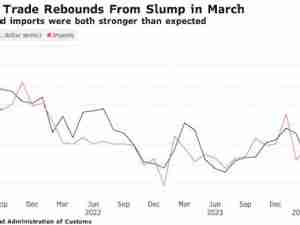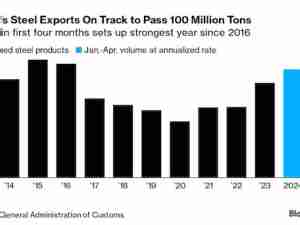Shenzhen’s Yantian Terminal Hit With Strike
By: George Lauriat | Sep 03 2013 at 04:36 PM | International Trade
"All container operations have stopped," one tweet read. "The company didn't pay out a promised scholarship for the sons and daughters of workers, and we are currently looking for a solution."
The user added that the local authorities had been holding meetings to mediate the dispute since Sunday, after receiving a number of complaints about the non-payment of benefits a day earlier.
"The majority of the workers in all department are out on strike," a second striking worker told RFA's Mandarin service by direct message on a popular social media site.
"A lot of departments are now paralyzed."
"We aren't just blindly going on strike," the worker added. "We are waiting for a decision from higher up."
"The workers want a peaceful resolution to this strike, but we also want fair treatment," the worker said.
An employee who answered the phone at the container terminal company offices on Monday didn't deny that industrial action was underway, but denied that services had halted.
"We are in a go-slow situation here," the employee said. "We are still discussing things [with the workers], but we are still providing services."
An official who answered the phone at the Yantian neighborhood committee of the ruling Chinese Communist party confirmed that talks were underway.
"Yes, yes, yes," the official said. "Someone [from our committee] has already gone over there to deal with the situation."
"I heard that the talks began at the weekend...We will make a report to the district government this afternoon, but the people who are at the scene haven't come back to tell us what happened yet."
Complaints received
A second official said the committee had received a number of complaints from Yantian port employees on Saturday.
"All of the neighborhood committee leaders are there now," he said, but declined to give further details of the strike.
The action comes after a long-running strike by workers at the Kwai Tsing container terminals in neighboring Hong Kong, which many feared at the time could jeopardize the territory's reputation as a leading container port.
Yantian International Cargo Terminals last year handled 10.66 million 20-foot containers, referred to as twenty-foot equivalent units (TEUs), more than half Hong Kong’s annual throughput.
But labor relations experts said at the time that Hongkong International Terminals (HIT), which is controlled by Hong Kong tycoon Li Ka-shing, lost 5 million Hong Kong dollar (U.S. $644,760) a day because of poor labor relations, compared with those in Shenzhen's ports.
Workers at Yantian formed a representative trade union to negotiate a collective agreement on wages and working conditions with management after the Shenzhen dockyard strikes of 2007, according to Geoff Crothall of the Hong Kong-based workers' rights group, China Labor Bulletin.
"Shenzhen not only survived the strikes, it continued to develop and expand and eventually overtook Hong Kong," Crothall wrote in a blog post during the Kwai Tsing strike in April.
"If you want a successful, well-run container port; Talk to the workers," he wrote.









